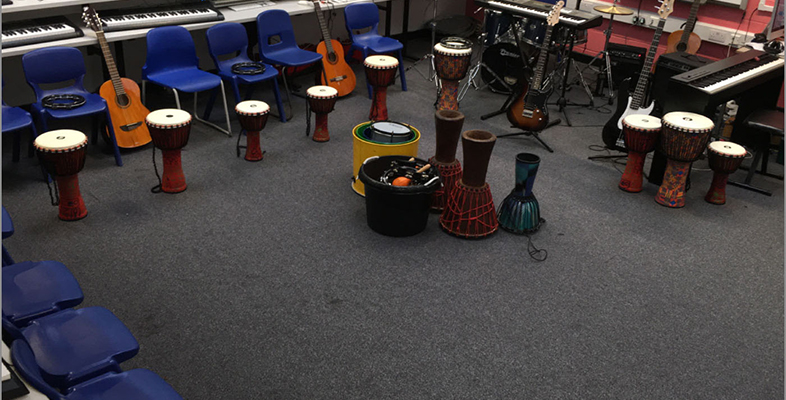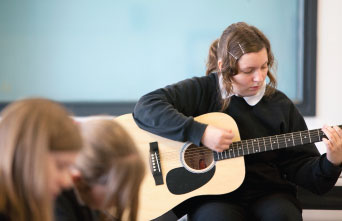Knowledge of music
Although conceptually the most difficult to pin down, the most important of these knowledge types is knowledge of music as it is this knowledge that makes music meaningful for us as human beings. It is the reason why we and young people engage with music. It’s what makes us pick up and play ‘our’ instrument, download a track by our favourite artist or compose a song to perform at, say, an open-mike session.
Reflection point
Reflect on what it is about music that makes it meaningful for you. What first attracted you to music and what keeps you ‘coming back’ to it?
Philpott suggests that knowledge of music has been developed when one has an:
understanding relationship with the music, in the same way that we get to know a person or a face. We might not be able to say what we know or even demonstrate it yet the relationship with ‘this’ piece of music cannot be denied. Indeed, this is the only way that we can account for pupils developing musically without any formal music education.
Spruce (2007) describes it as like coming to ‘know’ a particular wine. One’s knowledge ‘about’ a particular wine might be that it comes from the Bordeaux region of France, that it results from the blending of particular types of grape and comes from a vineyard that has a reputation for producing ‘Premier Cru’. One might also know ‘how’ to lay it down; to decant it; to pour it and to cork it.
However, few would argue that this knowledge ‘about’ and ‘how’ is any substitute for actually drinking the wine. It is only through drinking wine – regularly and thoughtfully – that one comes to really have knowledge of it and its many types and varieties. The Guardian’s one-time wine correspondent, Victoria Moore, describes this kind of knowledge of wine thus:
the only way to acquire it is by tasting until you know a wine’s signature as instinctively as you might recognise a footballer – not by matching in your brain the words you would use to describe him to someone else (for example, ‘heavily built but fast, with black hair’), but because his gait across the pitch, that very particular way he leaps to head the ball, is a pattern you just know.
This understanding of music might be demonstrated in the way in which we perform something: how we out its subtleties and nuances in our own personal way. It might be manifest in compositions or improvisations – how we make these uniquely our own or do something unexpected and engaging with a common musical device. Or, it might simply be how we talk about music in a way that makes others think differently about it or that represents a creative and original viewpoint.

